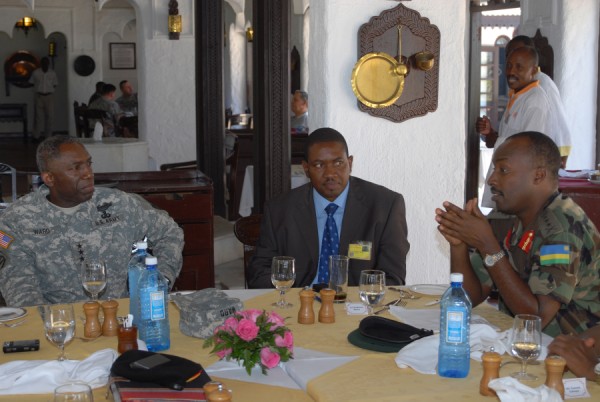News:
The news media have reported about the attempted military coup led by Godefroid Niyombare, a retired Burundi major general against the government of President Pierre Nkurunzinza. The attempted military coup came after a series of demonstrations and scuffles for two consecutive weeks following the announcement by the functionary president to increase his presidential term in office to three. A move that contradicts the constitution of that country and violates the Arusha Peace and Reconciliation Agreement. The attempted coup came at a time when the incumbent president was attending a reconciliation meeting in Dar Salaam to solve the plight in his country.
Comment:
What continues in Burundi, in its wider political panorama, is nothing but a struggle of interests and political influence between the capitalist states, especially America which has unquenchable enthusiasm to strengthen its influence and curb its interests in that country through its agent, the incumbent President Pierre Nkurunziza. America seems to be wary of the heir of the throne after him.
On the other hand, the European countries, which are the former colonial masters of Burundi, crave for the recuperation of Burundi to their grasp.
The genesis of the country of Burundi was one country with Rwanda under the colonial rule of Germany/German East Africa. Known as Ruanda-Urundi. After the defeat of Germany in the First World War, the land was robbed of Germany and given to Belgium which divided it into Rwanda and Burundi. Belgium, for its own political interests in Ruanda-Urundi maintained a great scope of the tribal animosity between the Hutu and Tutsi, the two biggest tribes. A condition that led to the eruption of tribal antagonism which culminated into the 1959 genocide, where the Hutu attacked the Tutsi and massacred them by the thousands. Many Tutsi escaped to Uganda, Burundi, Congo and Tanzania to find freedom from persecution.
Until now, all the countries neighboring Rwanda and Burundi host in great number of folks from these tribes.
Burundi, despite being regarded as one of the poorest countries in the world, it’s a country that is inundated with vast natural resources and an environment full of moisture among the Great Lake countries. It is one of the 10 biggest coffee producers in Africa and buyers of its beans include Starbucks Corp. According to the African Development Bank, it holds 6 percent of the world’s nickel reserves. On top of that, it is a source of the Nile River linked from Lake Victoria to its headwaters via the Ruvyironza River. Among the major lakes in East Africa, Lake Tanganyika is located in much of Burundi’s southwestern corner.]
Even though President Pierre Nkurunziza of Burundi is not from Tutsi background. In many instances US played the tribal card to maintain its influence from Uganda, Rwanda and Burundi which in many cases ruled by the Tutsi tribesmen backed by America since 1994.
When the Tutsi rebels, backed by America, seized power in Rwanda in 1994. The eastern flank of Congo together with these three states built a formidable fortress of American influence in the heart of the African continent. Thus they were able to uproot British and French influence from the region.
That’s precisely why, during the attempted coup against the President of Burundi White House spokesman Josh Earnest said,
“We call on all sides to lay down arms, end the violence and show restraint just as Burundian authorities have a responsibility to restore the necessary conditions to hold credible elections…” Earnest adding that the U.S. still considers Nkurunziza to be the president.
It is therefore crystal clear that President Pierre Nkurunziza, is on the American side, while Major General Godefroid Niyombare, Burundian military officer who led the coup and who is believed that his dismissal is by Pierre Nkurunziza, was after the leaking of his 10-page memo against the third-term bid of President Nkurunziza.
Simultaneously, a European think tank considers the coup attempt as a nice token:
Fillip Reyntjens, a professor of law and politics at the University of Antwerp in Belgium and expert in the African Great Lakes region said, “If this coup succeeds and consolidates, this may well be what one may call a good coup d’état.”
Under the yoke of the capitalist ideology, Africa despite being inundated with vast natural resources and wealth, still it is regarded to be among the poorest continents, inferior and ignominious! Consequently, its populace is always victim to being the battleground of political strife between the capitalist states. Africa is in a dire need of the Islamic State Khilafah to intellectually redeem its populace and salvage its vast natural resources which are inferiorly sold if not pilfered at all.
Written for the Central Media Office of Hizb ut Tahrir by
Masoud Msellem
Deputy to Media Representative of Hizb ut Tahrir in East Africa

